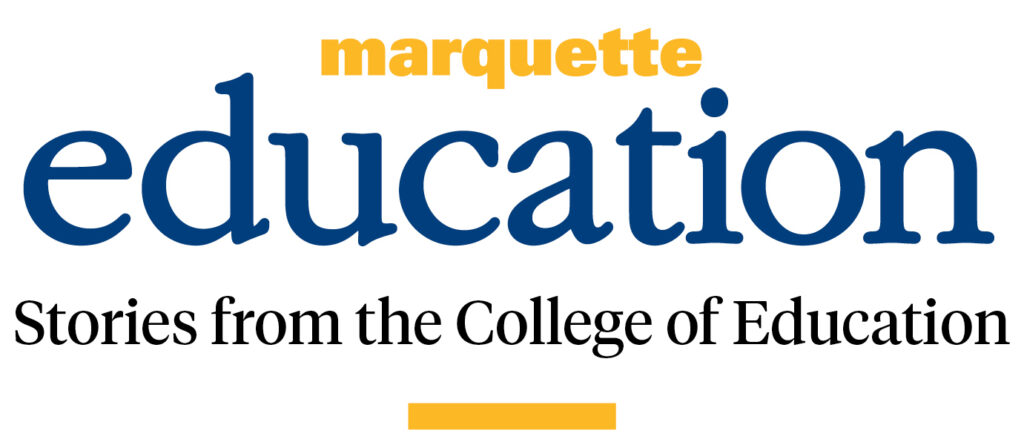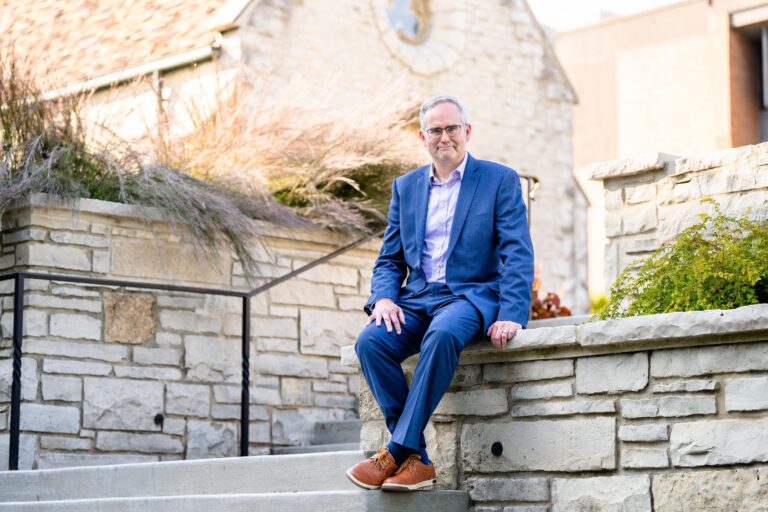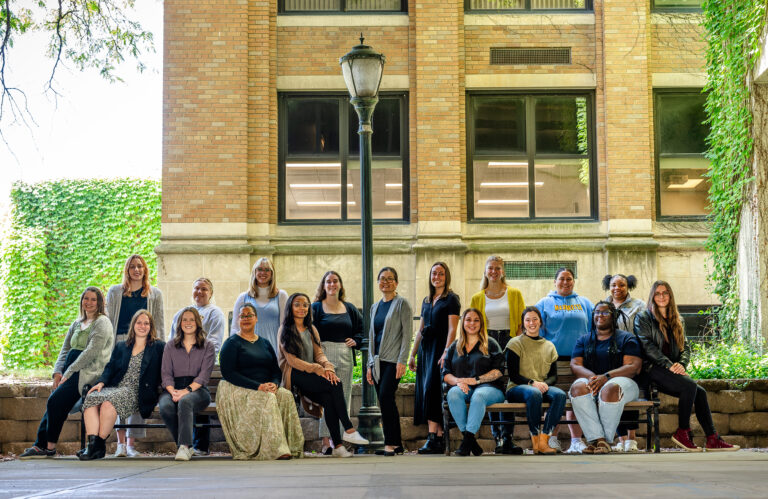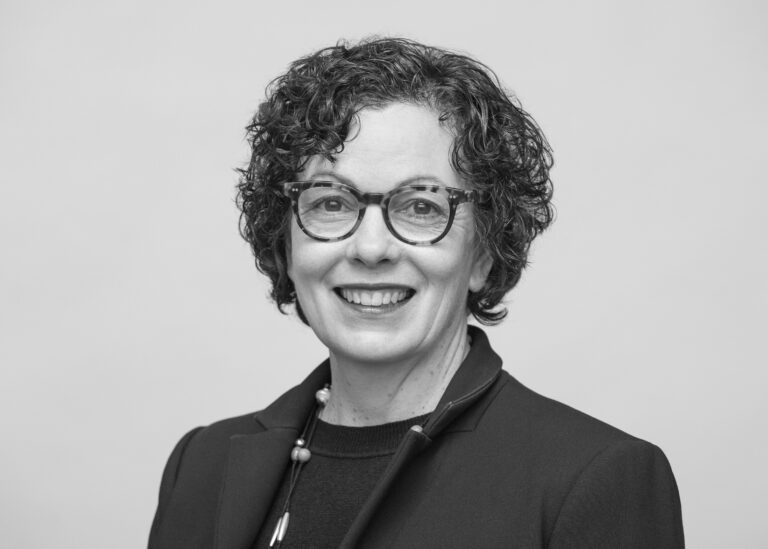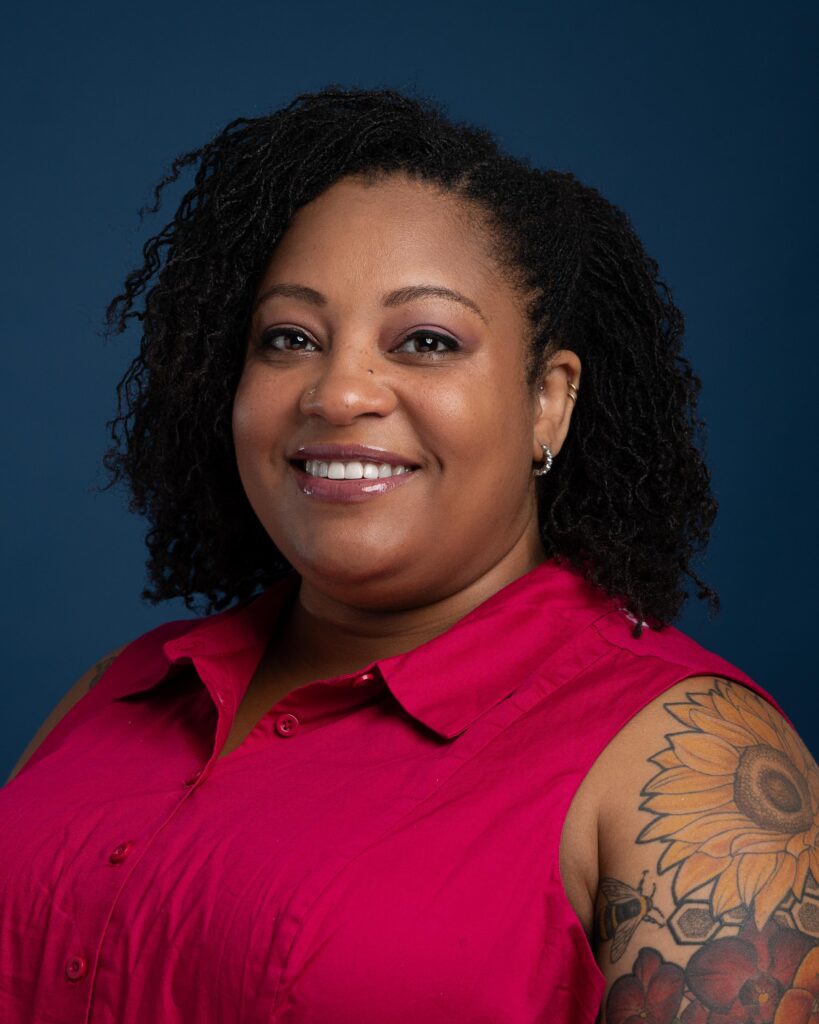
There’s a famous quote in mathematics, one that encapsulates the often authoritative nature of the field. “Math doesn’t lie.” Numbers are unaltered by emotion or opinion, guiding us toward a universal truth.
Dr. Blake O’Neal Turner, assistant professor in Marquette’s College of Education, is trying to push back on that cliché.
“When I was a teacher, I loved having my students read ‘Fermat’s Lament,’” Turner says. “It’s a very short story. Essentially, the author is talking about how we have creativity in art, or in English, but we don’t think about the creativity in the math classroom. We just teach kids algorithms instead of allowing them to figure out why does a2 + b2 = c2, allowing them to kind of use creative thinking skills to understand the math that’s happening around them.”
It’s a mindset that goes against historical norms, and thus perhaps understandably was met with some pushback. Even Turner, equipped with a traditional mathematical background, grappled with the concept when she first engaged with the topic as a graduate student.
“I’ve always been told it’s universal. Everyone is told the same thing,” says Turner. “We don’t even recognize there are different ways of doing math. Different cultures, different groups of folks have different ways of doing and practicing math. We just assume that everyone does it the same way.”
A rigid mindset within mathematics limits who is accepted into the field, as well as who succeeds within the classroom. As Turner has discovered, a one-size-fits-all approach eliminates the context in which people learn – especially for students of color.
We don’t even recognize there are different ways of doing math. Different cultures, different groups of folks have different ways of doing and practicing math.
Dr. Blake O’Neal Turner
The idea that math is not racially, politically or culturally neutral was the central theme in Turner’s dissertation, titled “Rupturing Antiblackness in Mathematics Education Research: BlackQuantCrit as Theory, Methodology and Praxis,” which she recently completed while serving as Marquette’s 2022-23 Arnold L. Mitchem Dissertation Fellow. The fellowship, founded in 2003, supports doctoral candidates from marginalized groups while they work to finish their Ph.D.
Turner recounts a phrase from Dr. Rochelle Gutierrez, professor of education at University of Illinois at Urbana–Champaign: “Mathematics is considered whiteness” because it guides, as Turner put it, “who gets credit for doing mathematics, whose mathematics do we take as valid and relevant.”
“Those things tend to marginalize Black and non-Black students of color,” Turner continues. “They’re used even when we think of testing. There’s these ‘achievement gaps,’ but our research is showing that its opportunity gaps, particularly for Black and non-Black students of color. That context matters and we have to take that into consideration.”
Now a full-time faculty member at Marquette, Turner is continuing her passion for enacting anti-racist and equitable pedagogies in the classroom while using research to expose and dismantle anti-blackness in education broadly. As she educates pre-service teachers in the College of Education, her research has made an impact on her own teaching.
“I am definitely a different teacher having done this research than I was before,” Turner says. “We have a lot of conversations about how we can be critically reflective and check our own positionality and recognize the way that we did education models the way that we were trained as students and as learners. It’s ok to let that go and learn something new.”
At its best, the classroom is not a one-way relationship, no matter what subject. Turner emphasizes listening to your students – you never know what you might learn.
“It’s ok to make mistakes, but you have to continue to reflect on what you’re doing and why you’re doing it,” Turner says. “Are you being complicit in the system and just going things because that’s what people have told you, or are you trying to really destruct the system and make better change for your students?”
